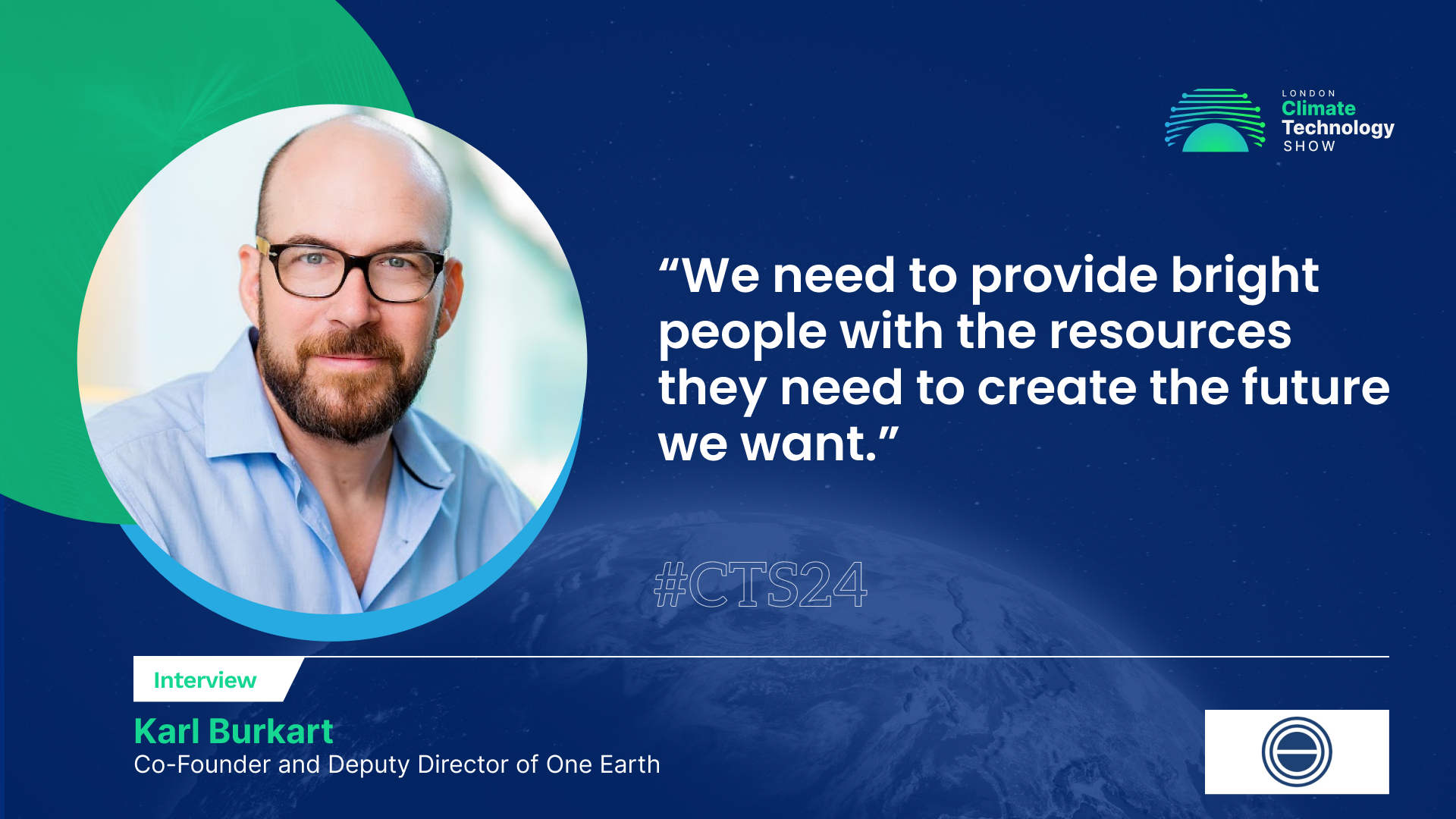To effectively address climate change, we must confront the issue head-on. While we might not be able to engage directly in every scientific or technological endeavour, we can provide philanthropic support to academic institutions and NGOs that are at the forefront of climate technology. In a recent interview, Karl Burkart, Co-Founder and Deputy Director of One Earth, discussed with Muhammad Younis his organisation’s innovative efforts, key initiatives, and its mission to amplify impactful philanthropy to combat the climate crisis.
#CTS: Can you provide a concise overview of One Earth's mission and its core objectives in addressing climate change and related environmental challenges?
Karl Burkart: One Earth is a nonprofit organisation working to accelerate collective action to solve the climate crisis through groundbreaking science, inspiring media, and an innovative approach to climate philanthropy. The solutions for the climate crisis already exist, and the latest science led by One Earth shows we can achieve the critical 1.5°C goal through our three pillars of collective action – A just transition to 100% renewable energy; Protection and restoration of half of the world’s lands and oceans; A shift to net-zero food and fiber systems.
#CTS: Could you share examples of significant initiatives or projects that One Earth has funded? What were the specific outcomes and overall impact of these initiatives in terms of climate change mitigation or adaptation?
Karl Burkart: One Earth has funded over 100 organisations working on the front lines of the climate crisis, as well as scientific teams working to advance decision making both at national and subnational scales. Two examples are the One Earth Climate Model, referenced by OECD and the Net Zero Asset Owner’s Alliance, which provides optimised transition pathways by industry sub-sector. Another one is the Global Safety Net, which helped to introduce the 30x30 conservation target in peer-reviewed literature and established a framework for collective action on conservation target setting.
#CTS: In your role at One Earth, how do you perceive the response of individuals, organisations, and higher-level institutions to the pressing issue of climate change in terms of funding and philanthropic support? Are there any trends or challenges in scaling up funds to address climate change effectively?
Karl Burkart: Unfortunately philanthropic contributions to tackle climate change and environmental degradation are tiny, about 2% of global philanthropy. And for the most part, funders are quite risk averse, perhaps more risk averse than investors. This is a shame because philanthropy could be playing a much larger role as a catalyst in solving the climate crisis.
#CTS: Given the urgency of addressing climate change, what strategies or approaches does One Earth employ to encourage and facilitate collaboration and increased funding support from various stakeholders, including governments, private sector, and philanthropic organisations?
Karl Burkart: We produce scientific products and tools to support decision makers at all levels of government as well as private capital allocation. We build trust and confidence for decision makers who can influence policy and accelerate the pace of change, often by synthesising or clarifying complex data so they can be actionable.
#CTS: On a personal note, what motivates you to work on climate and environmental issues, and how do you see your role making a difference in addressing the climate crisis?
Karl Burkart: We have seen the impact of a good idea that is properly resourced early – net zero, just transition, 30x30 – these ideas started out with support from philanthropy and they have shaped the discourse in a huge way. This gives me faith that we need to provide bright people with the resources they need to create the future we want.
#CTS: The London Climate Technology Show appears to align closely with your vision for advancing sustainability. How do you view events of this kind and their role in advancing a sustainable world?
Karl Burkart: Would be great to have a showcase of some of the top technology and science applications supporting decision makers on climate solutions.

